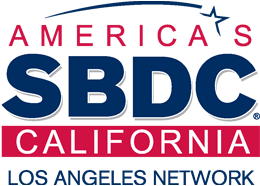February 21, 2012
Do you think pursuing government contracts is beyond your small business’s reach? The federal government isn’t the only contracting opportunity out there. Contracting with local government agencies can be a lucrative way for small businesses to get into the contracting game.
How can entrepreneurs find out what types of products and services their local government agencies need?
You can contact the agencies directly, says SBDC Business Advisor Donald Stukes, but you can also perform market research to find out how much money the government spends on your product or service. This is an important step, because if the government doesn’t buy your product or service at a price point that allows you to make a profit, you shouldn’t pursue government contracting. “SBDCs are a great source of information regarding conducting market research,” says Stukes.
 What factors should a small business owner consider in assessing whether they are ready to handle local government contracts?
What factors should a small business owner consider in assessing whether they are ready to handle local government contracts?
Stukes advises asking yourself the following:
- How much time do I have to work on my business instead of in it?
- What resources do I have available to use for government contracting?
- Is my firm “scalable”?
- Do I have a solid marketing/business development plan?
- Do I have a solid business plan?
- Can I effectively execute my plans?
- Can I take advantage of teaming with other firms?
- Do I have at least three years of above-average and documented past performance?
Pursuing government contracts without assessing these factors is the biggest mistake most small businesses make, says Stukes.
How does the bidding process work?
When a government agency decides to contract out for a product or service, it will issue a Request For Proposal (RFP). Potential contractors review the RFP to see if they meet its requirements and if it fits with their business model. If you decide to respond to the RFP, you need to follow the instructions exactly. Keep in mind, Stukes says, that successful government contractors start the contracting process long before the bid.
How do you meet decision-makers in local government agencies?
“The more difficult part is determining who the decision-makers are,” says Stukes. “Many times the decision makers are a team that has a stake in the outcome of the contract award, and that team can change with each RFP [Request For Proposal] or process in the RFP.” For example, there might be one team that reviews RFPs and interviews potential contractors, but once they make their recommendations, another team will have to review those choices and make the final decision. “Once you identify who buys your products and services,” Stukes explains, “you can start to attend events that these agencies host for the purpose of meeting potential contractors.”
How does selling to a local government agency differ from a typical business-to-business sale?
“The typical business-to-business sale is based on your relationship with the buyer or decision-maker,” says Stukes. “Selling to local government agencies is based on dealing with multiple people and steps in the process.” Another key difference is the time frame. For example, Stukes says the average sales cycle to sell to Southern California Edison is four years.
In general, what criteria do local government agencies use when choosing vendors?
“The criteria vary with each RFP,” says Stukes. For commodity purchases, the decision is normally price-driven; for service purchases, the decision is normally driven by the best value.
Can small business certifications or the location of your business give you an edge over the competition?
“It depends,” says Stukes. “For example, if your office is located in the City of Los Angeles, most Los Angeles agencies will provide an incentive or advantage to L.A.-based small businesses.” Getting small business certifications may be helpful, too. “Certifications cover the federal government, state government and specific industries such as utilities,” says Stukes, who recommends contacting your local SBDC office for more information.
If you bid on a contract and don’t get it, what can you do to improve your chances the next time?
“Always request a debriefing whenever you don’t win a contract award,” advises Stukes. “Be respectful and absorb like a sponge.” The average business wins only one out of seven contracts, Stukes points out. Treat contracting like a marathon, not a sprint, and you’re far more likely to win the race.
Rieva Lesonsky is founder and President of GrowBiz Media, a media company that helps entrepreneurs start and grow their businesses. Before launching her business, she was Editorial Director of Entrepreneur Magazine. Follow Rieva at Twitter.com/Rieva, read her blog at SmallBizDaily.com, and visit her website SmallBizTrendCast.com to get the scoop on business trends and sign up for free TrendCast reports.





